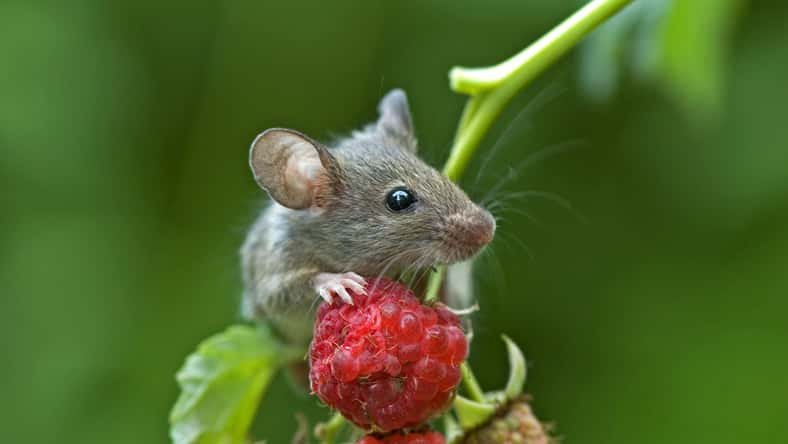Mice Be Gone: Save Your Veggies And Sanity With These Tips To Maintain A Rodent-Free Garden

How good does it feel after you’ve put in the sweat, toil, and love to create a garden that’s the talk of the neighborhood?
Your tomatoes are ripening, your herbs are flourishing, and your flowers are blooming like they’re in a Disney movie.
But then, just when you think you can sit back and enjoy the fruits– quite literally– of your labor, you spot something: a tiny, uninvited guest nibbling on your green beans. Yep, you’ve got mice.
And before you shrug it off as “nature just doing its thing,” let’s talk about why these little critters are bad news for your garden and how you can reclaim your space.
Why Mice Aren’t Fit For Your Garden
Let’s start with the elephant—or should we say mouse—in the room.
Mice may look cute and harmless, but they are not the guests you want nibbling on your tomatoes and carrots.
They’ll dig holes, chew through stems, and make an all-you-can-eat buffet out of your hard work.
Mice can also transmit diseases and attract predators like snakes into your garden. Bottom line: unless you’re into wildlife dramas, you’re going to want to give mice the boot.

Photo 22750755 © Kyslynskyy – Dreamstime.com – illustrative purposes only, not the actual mouse
Seal The Perimeter
A strong physical barrier can be your first line of defense. Think of it as your garden’s VIP-only list.
Chicken wire or mesh fencing with openings smaller than a quarter-inch is your go-to.
Dig a trench about a foot deep around your garden and install the fence so that it extends underground. This stops the little buggers from tunneling their way in.
Also, make sure the fence stands at least 18 inches high to prevent any Olympian leaps.
Scents That Repel
Mice have a keen sense of smell, which you can use against them.
Sprinkle some peppermint oil, crushed garlic, or even used cat litter around the perimeter of your garden. It’s like the aroma equivalent of a “Do Not Enter” sign for mice.
Then, just refresh these natural repellents every few days, especially after rainfall, to keep their potency strong.
Lights And Motion Sensors
Mice are like miniature night owls. They love the cover of darkness to go on their little adventures.
That’s why installing motion-activated lights or sprinklers can give mice a good scare, making them think twice before taking that nibble.
This will make your garden the last place a mouse would want to throw a midnight rave.
Plant Deterrents: Two Birds, One Stone
Some plants also naturally repel mice and will add a nice pop of color and aroma to your garden.
Lavender, daffodils, and marigolds are not only beautiful but also act like bouncers at the garden gate for rodents.
Plus, your garden will smell divine. That’s a win-win if you ask us.
The Last Resort: Humane Traps
If all else fails, you can consider using humane traps in your garden.
These are designed to capture mice without harming them, allowing you to release them far, far away from your garden.
However, just remember to check the traps daily. Nobody wants to be the jailer who forgets about the prisoner.
If true crime defines your free time, this is for you: join Chip Chick’s True Crime Tribe
She Lives In An A-Frame Home That’s Woodsy Yet Chic And Only Cost A Total Of $83,000
Sign up for Chip Chick’s newsletter and get stories like this delivered to your inbox.
More About:Gardening





